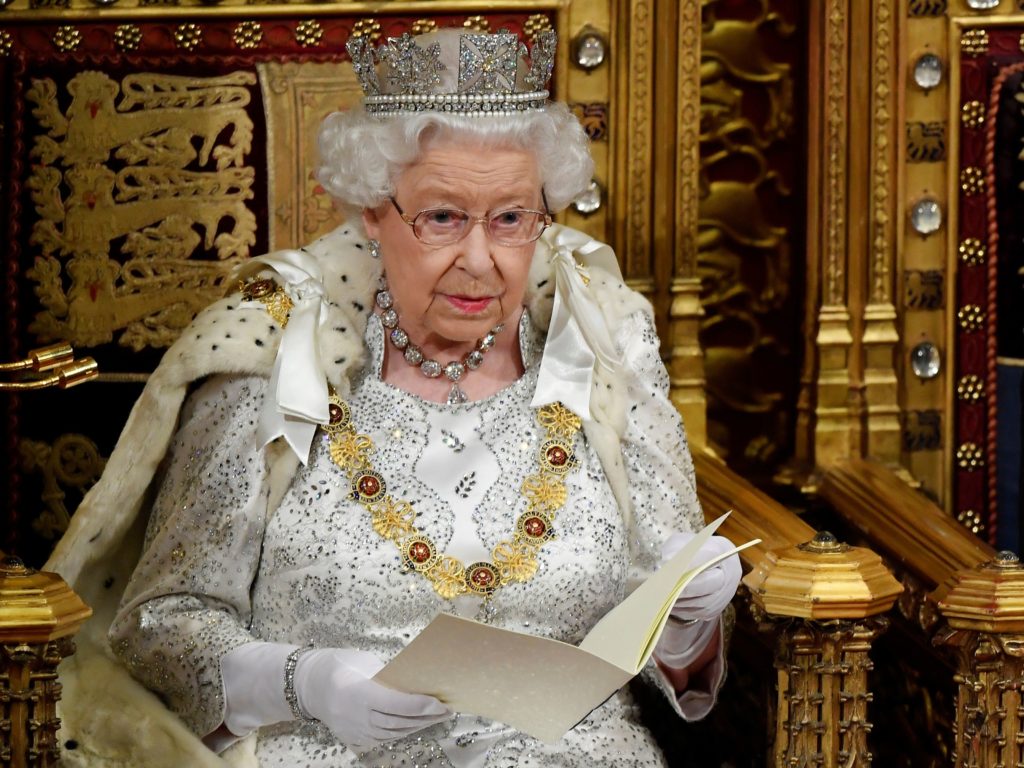Britain’s Queen Elizabeth II sits on the Sovereign’s throne in the House of Lords as she delivers the Queen’s Speech at the State Opening of Parliament in the Houses of Parliament in London on October 14, 2019. (TOBY MELVILLE/POOL/AFP via Getty)
The Queen gave a speech today (October 14) to set out the government’s priorities for the coming parliamentary year, but did not mention Gender Recognition Act (GRA) reform.
A public consultation on potentially overhauling the GRA – which controls how trans people gain legal recognition of their gender – was launched by then-equalities minister Penny Mordaunt in Theresa May’s government in July 2018. The results have not yet been published.
Many were hoping that the GRA would be mentioned, but despite current equalities minister Liz Truss reportedly being “committed” to reviewing the laws, the topic of GRA reform was absent from the State Opening of Parliament ceremony, marking start of the parliamentary year.
I’m hoping that in the next Queen’s speech in October they will announce they will be looking at changing the GRA but I’m not confident it will be
— 🧟♂️🧛🏻♂️🎃 Trick or Treat Tonks 🧙🏻♂️👻🕸 (@Ste_Tonks) September 12, 2019
The speech, which is written by ministers but delivered by the Queen from a throne, will be debated for around five days. Parliament will then have the chance to vote on the government’s proposals.
The legislative plan was made up of 26 bills, mainly focusing on delivering Brexit by October 31, the NHS and crime.
In the official briefing for the bills outlined in the Queen’s Speech, prime minister Boris Johnson wrote: “This is a programme that will set our country on a new, upwards trajectory. At its heart is a new vision for Britain.”
According to the BBC, leader of the Labour party Jeremy Corbyn said: “Having a Queen’s Speech and a State Opening of Parliament is ludicrous. What we have got in effect is a party political broadcast from the steps of the throne.”
Joanna Cherry of the SNP said the speech was “an election manifesto for the Conservative Party, which will almost certainly be rejected in Scotland”.
